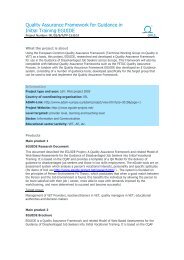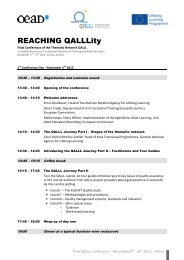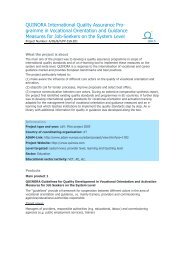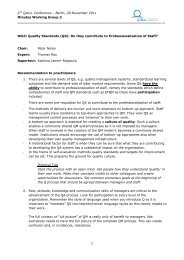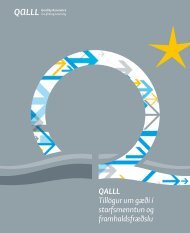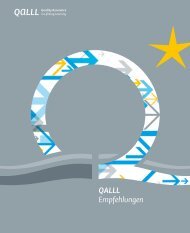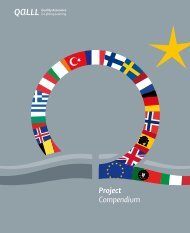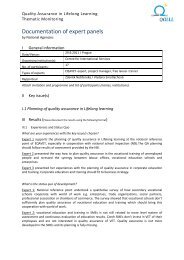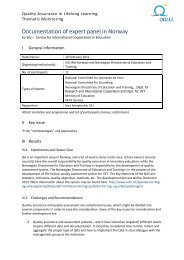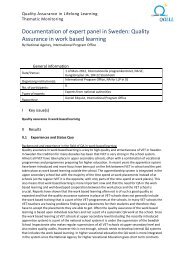Documentation expert panel LU - QALLL
Documentation expert panel LU - QALLL
Documentation expert panel LU - QALLL
Create successful ePaper yourself
Turn your PDF publications into a flip-book with our unique Google optimized e-Paper software.
<strong>Documentation</strong> of <strong>expert</strong> <strong>panel</strong>s<br />
Planning<br />
- Existence of a training culture in companies. Integration of capacity building as a strategic<br />
company goal.<br />
- Dialogue between training providers and clients in order to be able to present a tailor-made<br />
offer.<br />
- Necessity to anticipate the needs and skills’ requirements of the clients.<br />
- Flexibility, adaptability to the training needs.<br />
- Understanding that quality assurance in order to prepare a training offer is a tool and not an<br />
aim.<br />
- Train the communication and pedagogical skills of trainers (e.g. engineers, lawyers, doctors<br />
etc.) and train the company experience of teachers.<br />
- Innovation in pedagogical tools.<br />
- Introduction of skills assessment ex-ante<br />
Implementation<br />
- Timely reaction to the demand<br />
- Adequate reaction to training demands: if the demand expressed by a client cannot be met it<br />
should be clearly said<br />
- Need for trainers to stay client focused and adapt permanently to the trainee’s needs and<br />
level of skills.<br />
Evaluation<br />
Adjust<br />
- Monitoring of training results in-house and sharing feed-back with training providers<br />
- Measuring learning outcomes in behavioural trainings<br />
- Adaption of the skills reference frame<br />
- Facilitate the access and the guidance to the informal validation process (VAE)<br />
- Development of a national qualification framework<br />
- Implementation of an electronic training portfolio<br />
- Organisation of thematic exchanges between trainers<br />
- Adaption of training programmes<br />
- Continuous adaptation of trainers skills to the market needs<br />
III.3 State of the art and good practices<br />
The state-of-the-art in quality assurance in training and education was presented by the <strong>expert</strong>s as<br />
follows.<br />
- A positioning test in languages assures that the participant is guided in an appropriate way to<br />
the training that fits best and permits optimal training outcomes.<br />
- The training provider uses different types of modern communication tools in order to reach<br />
the participants in time (SMS, e-mailing).<br />
- A skills’ reference framework has been developed in partnership with researchers, trainers<br />
and sector representatives in a certain number of specialities (building and construction<br />
industry, IT).<br />
Gutknecht-Gmeiner, IMPULSE 2011 3



